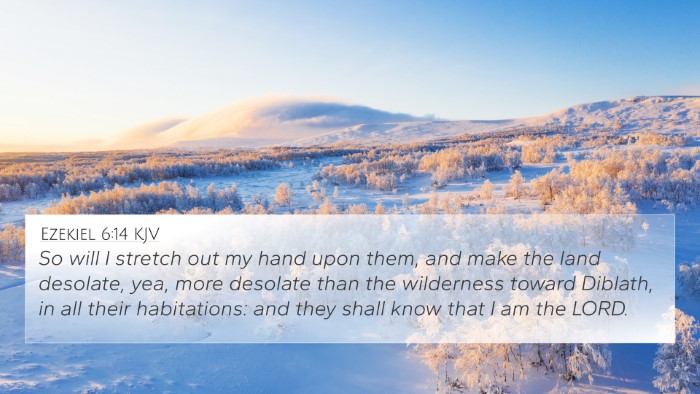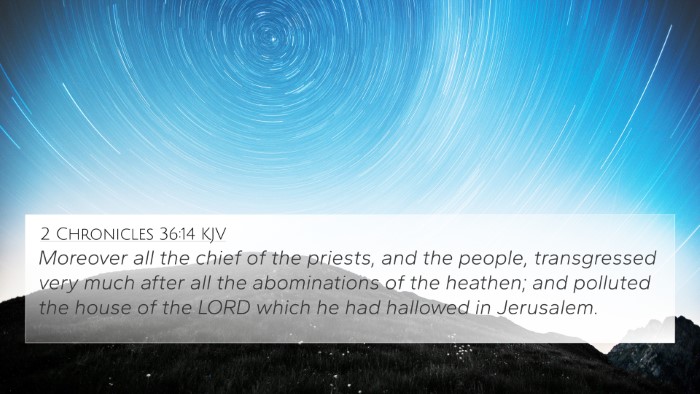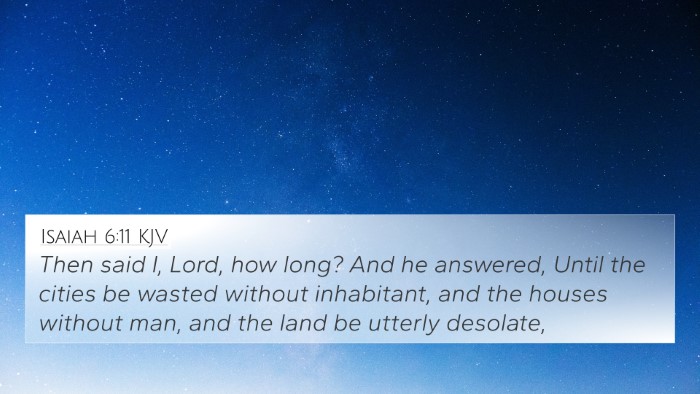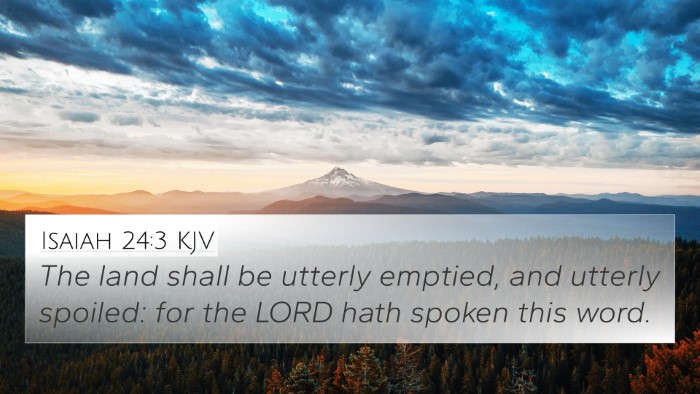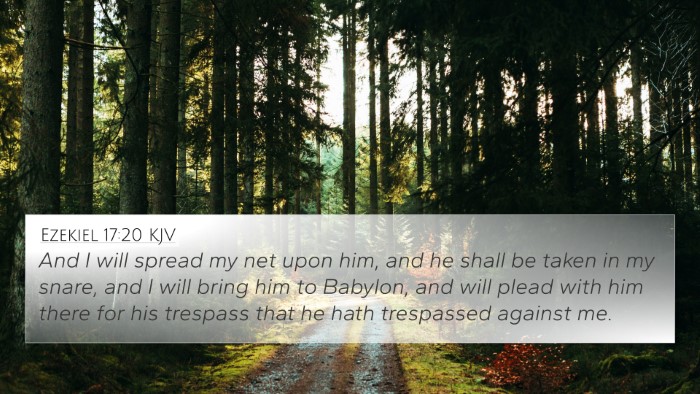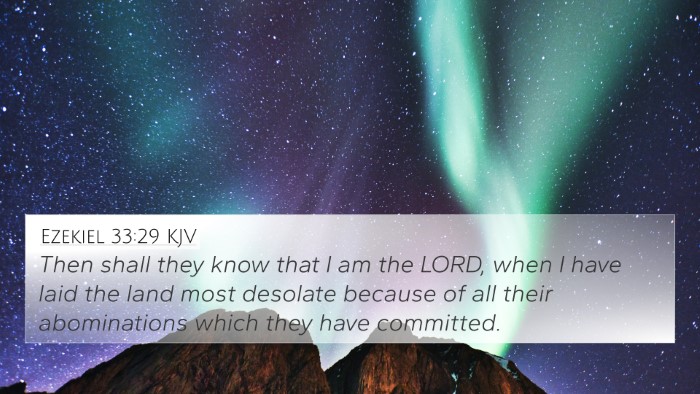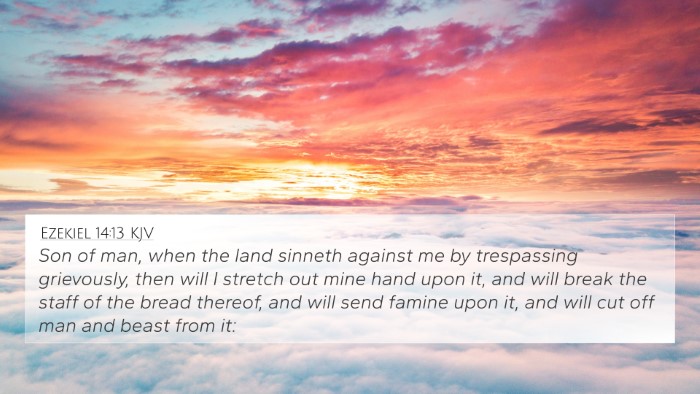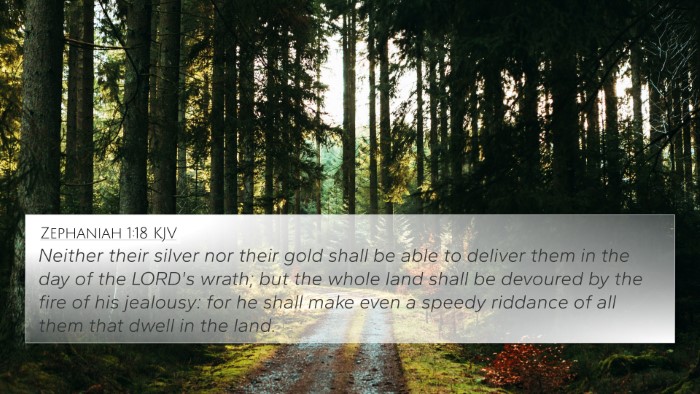Ezekiel 15:8 - Meaning and Interpretation
Ezekiel 15:8 states, "And I will make the land desolate, because they have committed a trespass, saith the Lord God." This verse is a part of God's pronouncement of judgment upon His people, symbolized through the allegory of an unproductive vine.
Summary of Key Themes
- Judgment and Consequences: The verse illustrates the weight of divine judgment due to the people's unfaithfulness.
- Symbolism of the Vine: The vine represents Israel, tasked with producing spiritual fruit, but failing to do so.
- Desolation as a Result: The consequence of sin and betrayal results in desolation, signifying a severing of the relationship between God and His people.
Public Domain Commentaries Insights
Matthew Henry's Commentary
Matthew Henry underscores the point that just as a vine without fruit is useless and doomed to destruction, so is Israel when it turns away from its purposes. He argues that God's judgments serve to restore righteousness and that the sorrow of desolation can lead to repentance among the people.
Albert Barnes' Notes
Barnes sees the vine in this context as a powerful metaphor for God's chosen people who have failed in their duty towards Him. He notes that the metaphor communicates God's displeasure and the resulting desolation demonstrates the fallout from abandoning divine commandments.
Adam Clarke's Commentary
Clarke emphasizes that the 'trespass' signifies the intentional wrongdoings of the people. He posits that the desolation of the land is a direct reaction to their spiritual barrenness, akin to a fruitless vine being stripped of its purpose and removed from the vineyard.
Cross-References and Related Verses
- Isaiah 5:1-7: The song of the vineyard illustrates God's expectations of Israel.
- John 15:1-2: Jesus speaks of Himself as the true vine and addresses the theme of fruitfulness.
- Jeremiah 2:21: God laments over Israel’s decline from a vine into wild grapes.
- Matthew 21:19: Jesus curses a fig tree that bears no fruit, symbolizing judgment on unfruitfulness.
- Romans 11:17-22: Paul discusses Israel's standing and warnings of being cut off.
- Ezekiel 17:6: Further metaphor on Israel as a vine, emphasizing loyalty to God.
- Hosea 10:1: Israel is described as a luxuriant vine that bears fruit for itself.
Thematic Connections
This verse not only speaks to the specific fate of Israel but also draws connections between various Biblical themes regarding:
- Responsibility and Accountability: The expectation of nations and individuals to remain faithful.
- God's Judgment: A recurring theme throughout Scripture emphasizing the consequence of turning away.
- Redemption: The possibility of returning to God even after desolation.
Implications for Cross-Referencing
This passage encourages deeper study through Bible cross-referencing, with tools such as a Bible concordance or Bible cross-reference guide to explore the intricate connections within Scripture.
For those interested in cross-referencing Bible study methods, consider how themes of judgment and redemption thread through both Testaments, linking the Old Testament’s prophetic warnings to New Testament calls for repentance.
How to Find Cross-References
When studying Ezekiel 15:8, you might ask:
- What verses are related to the themes of desolation and judgment?
- How do the warnings in Ezekiel compare to those found in the Gospels?
- What connections exist between the Old Testament and the messages of repentance in the New Testament?
Conclusion
Ezekiel 15:8 serves as a critical reflection on the accountability of God's people and the dire consequences of straying from His will. Through Bible verse cross-references, readers can explore the profound interconnectedness of Scripture and deepen their understanding of God's overarching narrative.



